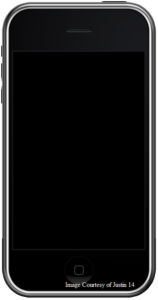Search Warrant Required Before Police Search Smartphones and Laptops
Under the Fourth Amendment to the United States Constitution, warrantless searches by the government are restricted. Specifically, the Fourth Amendment states that “the right of the people to be secure in their persons, houses, papers, and effects, against unreasonable searches and seizures, shall not be violated, and no warrants shall issue, but upon probable cause, supported by oath or affirmation, and particularly describing the place to be searched, and the persons or things to be seized.”

But what about e-mails, images, and other files stored on the cloud or on your smartphone? Do they qualify as an “effect”? This legal grey area has been exploited by police to try and search people’s smartphones, laptops, and cloud accounts without obtaining a search warrant. For example, Google has seen a staggering 180% increase in police demands for consumer data in the last five years, according to the Los Angeles Times.
State lawmakers took steps to correct this troubling practice. Sen. Mark Leno (D-San Francisco) proposed SB 178, the California Electronic Communications Privacy Act (CalECPA), which would require law enforcement agencies to obtain a search warrant before being able to search your private emails, text messages, and GPS data stored in your smartphone, laptop, and cloud service. The bill passed unanimously out of the Senate and was signed into law by the Governor.
Major tech companies based in California (e.g., Google, Twitter, Appleton, Facebook, etc.) endorsed the new law. Also, the Electronic Frontier Foundation and the California Newspaper Publishers Association endorsed the new privacy protection law.
“For too long, California’s digital privacy laws have been stuck in the Dark Ages, leaving our personal emails, text messages, photos and smartphones increasingly vulnerable to warrantless searches,” said Sen. Leno, according to the aforementioned Los Angeles Times article. He went on to say that the new law “was carefully crafted to ensure that the personal information of Californians of all ages is adequately protected and our law enforcement has the tools they need to fight crime in the digital age.”
How This New Law Could Help You
If you or a loved one was subjected to a warrantless search of your smartphone, laptop, tablet, or cloud-service, your Los Angeles criminal defense lawyer could file a motion to have any evidence obtained from the warrantless search excluded as “fruit from the poisonous tree.” This is a well-established legal doctrine stating that any evidence obtained by illegal means (e.g., warrantless search) must be excluded from trial (i.e. the jury will never see or hear about the evidence). For example, if a warrantless search of your smartphone leads to the discovery of an incriminating photograph or text message, this evidence may be deemed inadmissible at trial.
However, the “fruit of the poisonous tree” doctrine has three of key exceptions. The evidence could still be deemed admissible at trial:
- If it was discovered from a source independent of the illegal activity;
- Its discovery was inevitable; or
- If there is attenuation between the illegal activity and the discovery of the evidence.
This is why you need to speak to an experienced criminal defense attorney. They can assist in analyzing the facts of your case and determine the best strategy for challenging the government’s purported evidence against you.
Contact an Experienced Los Angeles Criminal Defense Attorney
The Law Offices of Peter Berlin features a legal team with years of experience in helping those who have been accused of various crimes. We are dedicated to providing excellent service in order to maximize your chances of having the charges dropped. We offer a free initial consultation, and we are available 24/7, nights, weekends and holidays. Call today (310) 289-5418.
